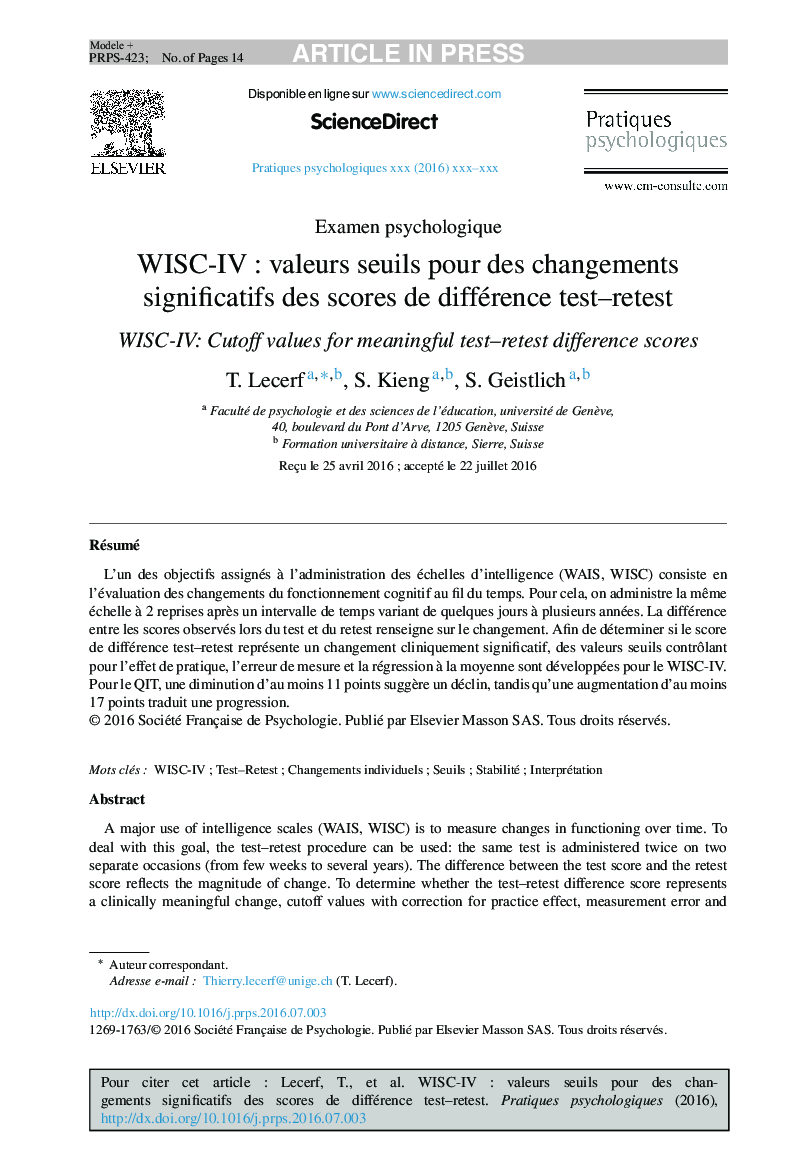| Article ID | Journal | Published Year | Pages | File Type |
|---|---|---|---|---|
| 7252424 | Pratiques Psychologiques | 2017 | 14 Pages |
Abstract
A major use of intelligence scales (WAIS, WISC) is to measure changes in functioning over time. To deal with this goal, the test-retest procedure can be used: the same test is administered twice on two separate occasions (from few weeks to several years). The difference between the test score and the retest score reflects the magnitude of change. To determine whether the test-retest difference score represents a clinically meaningful change, cutoff values with correction for practice effect, measurement error and regression toward the mean are provided for the WISC-IV. For the FSIQ, a decrease of at least 11Â points suggests a decline, while an increase of at least 17Â points reflects an improvement.
Keywords
Related Topics
Social Sciences and Humanities
Psychology
Applied Psychology
Authors
T. Lecerf, S. Kieng, S. Geistlich,
